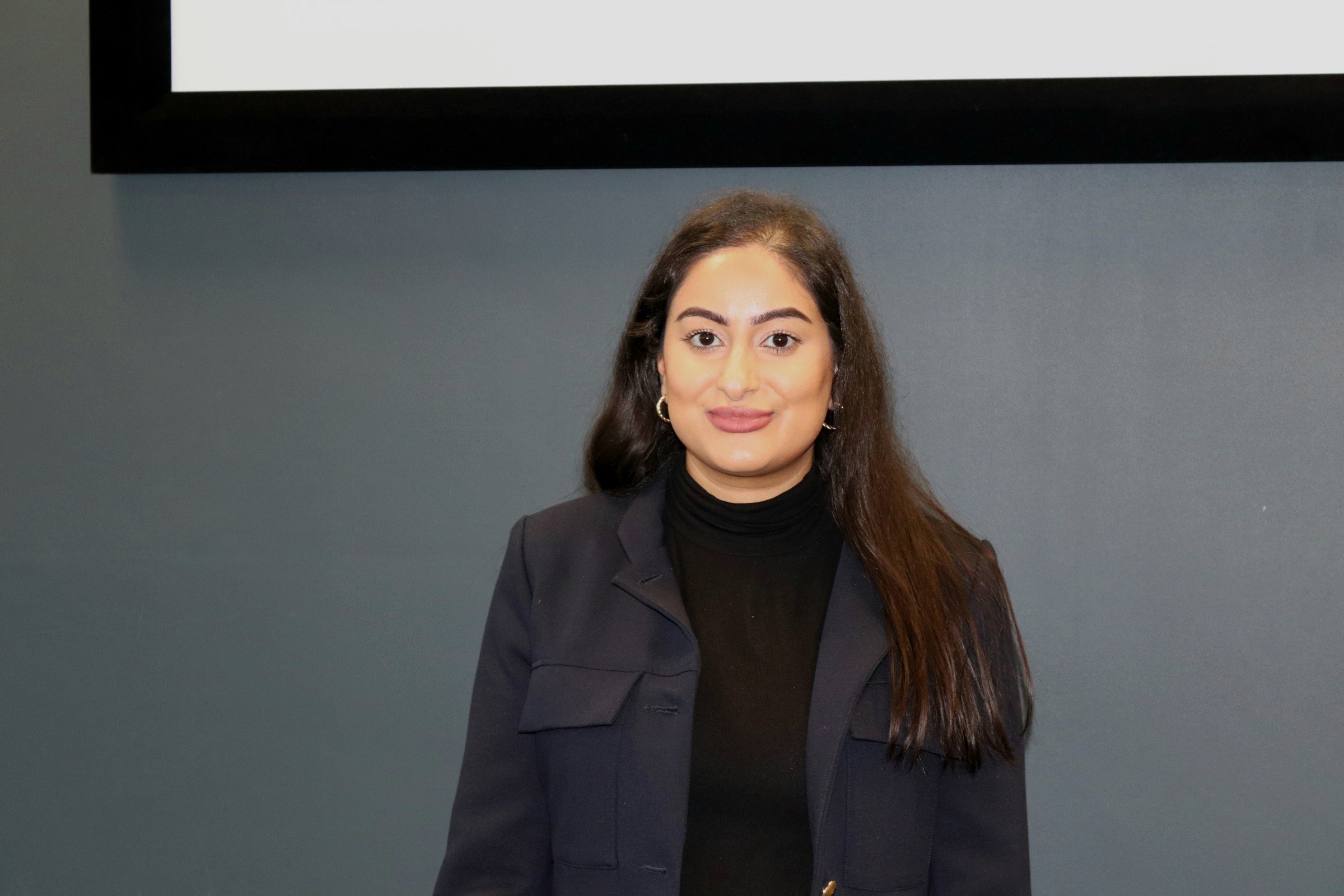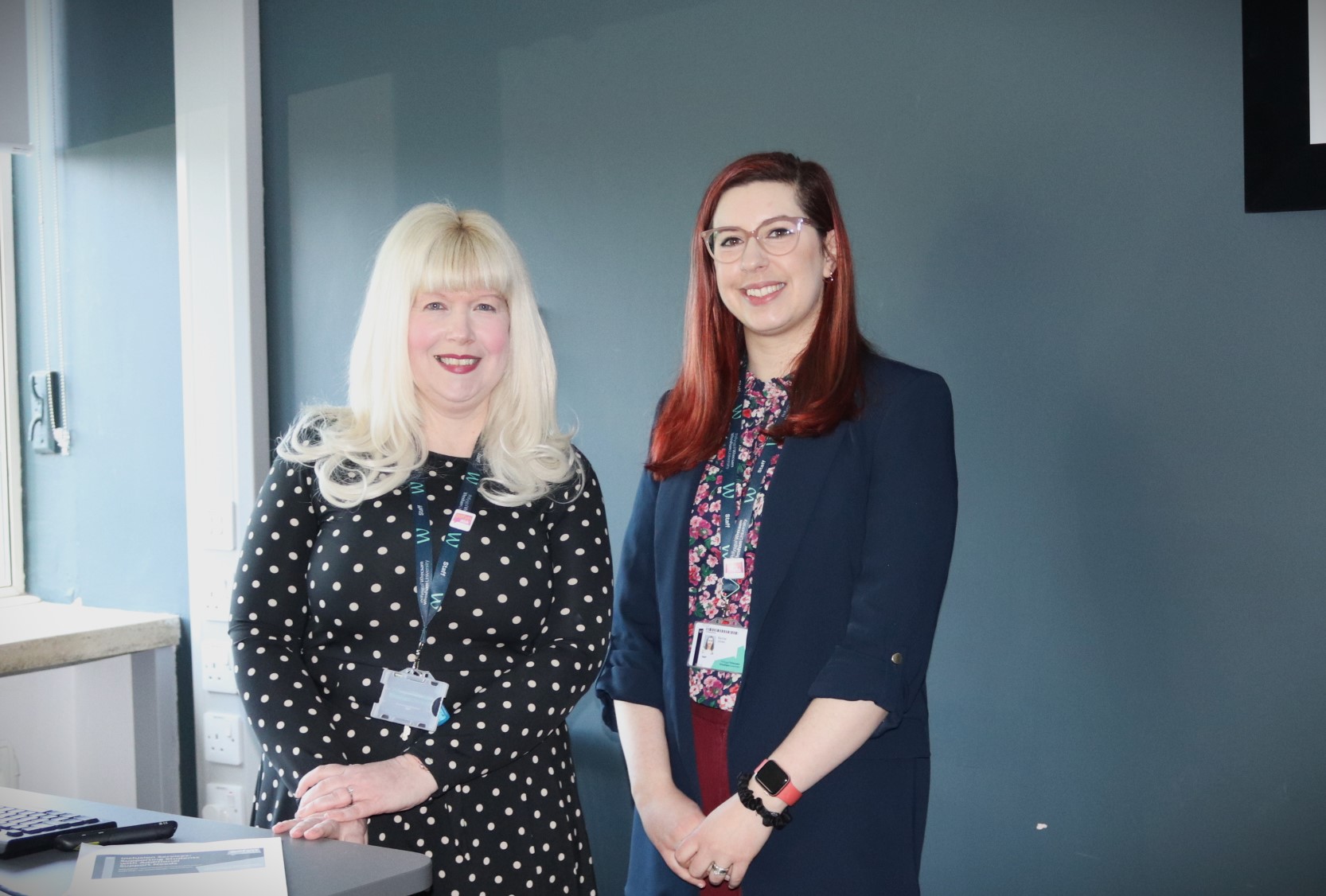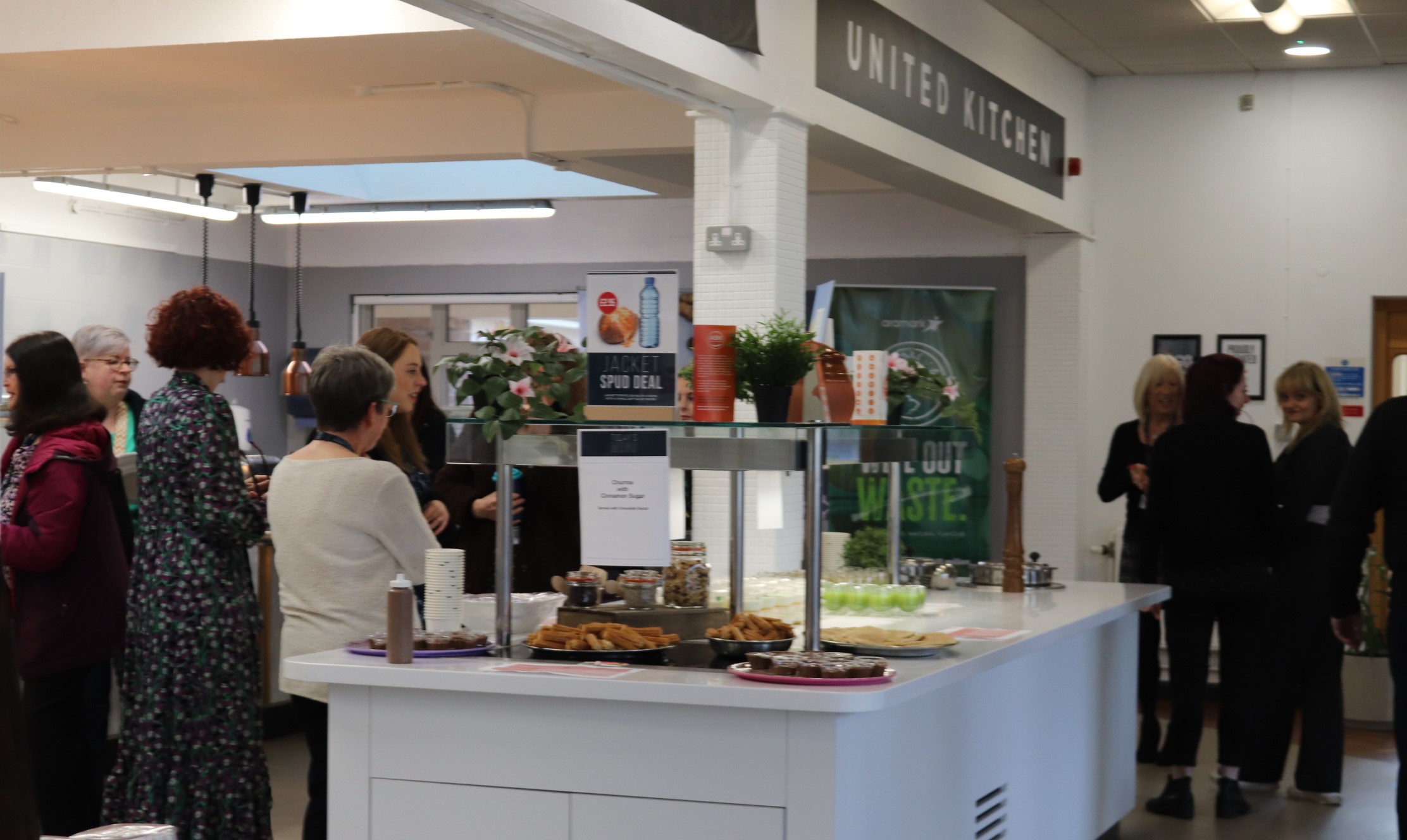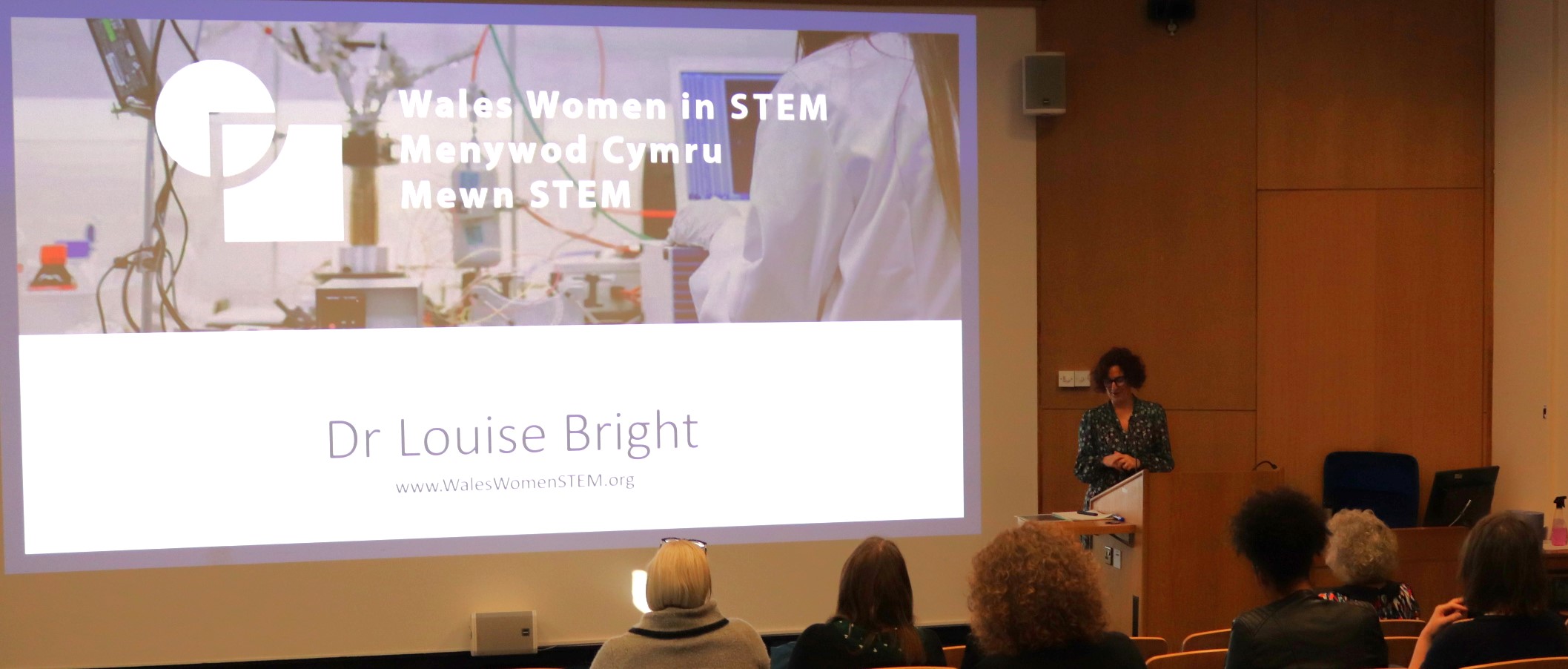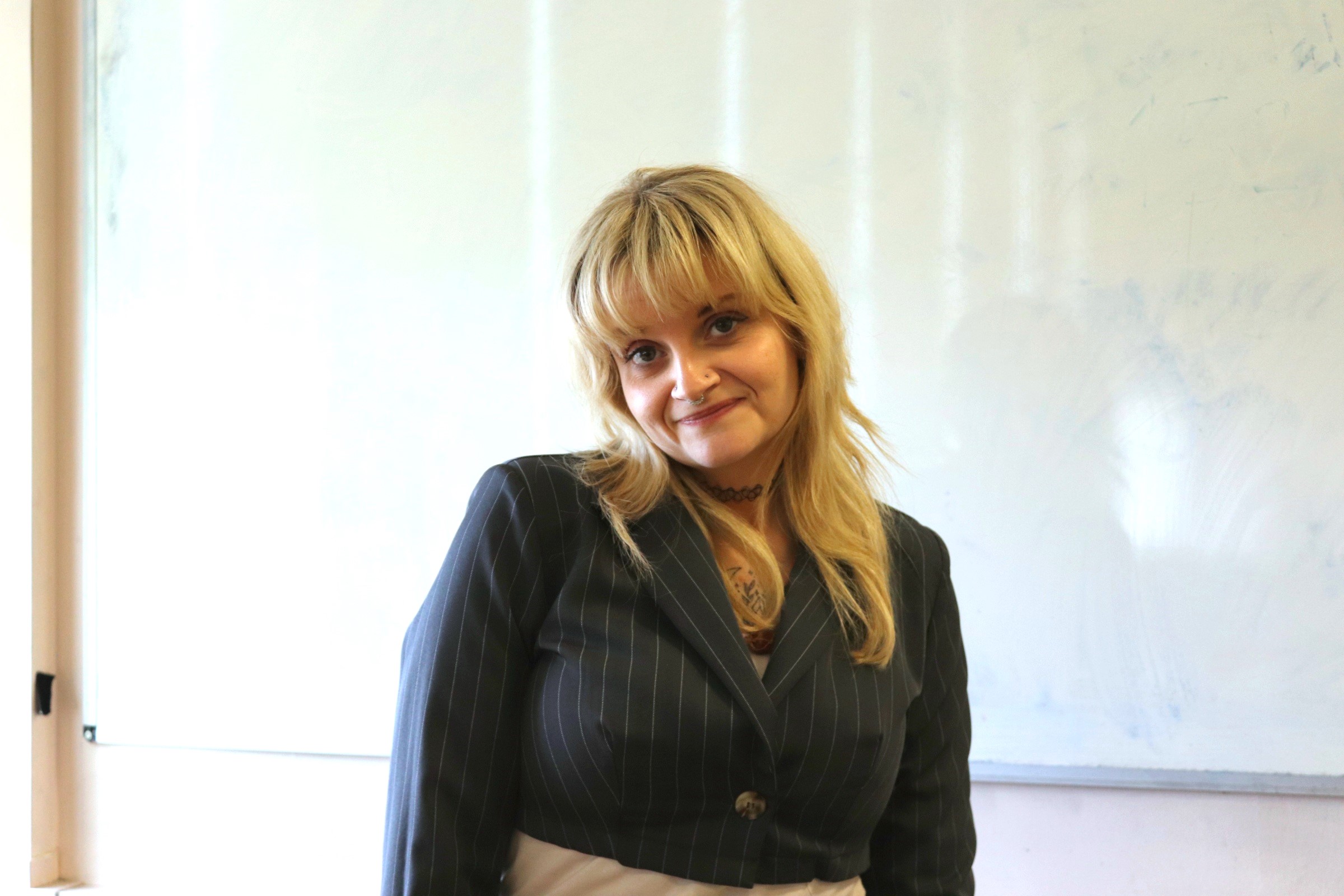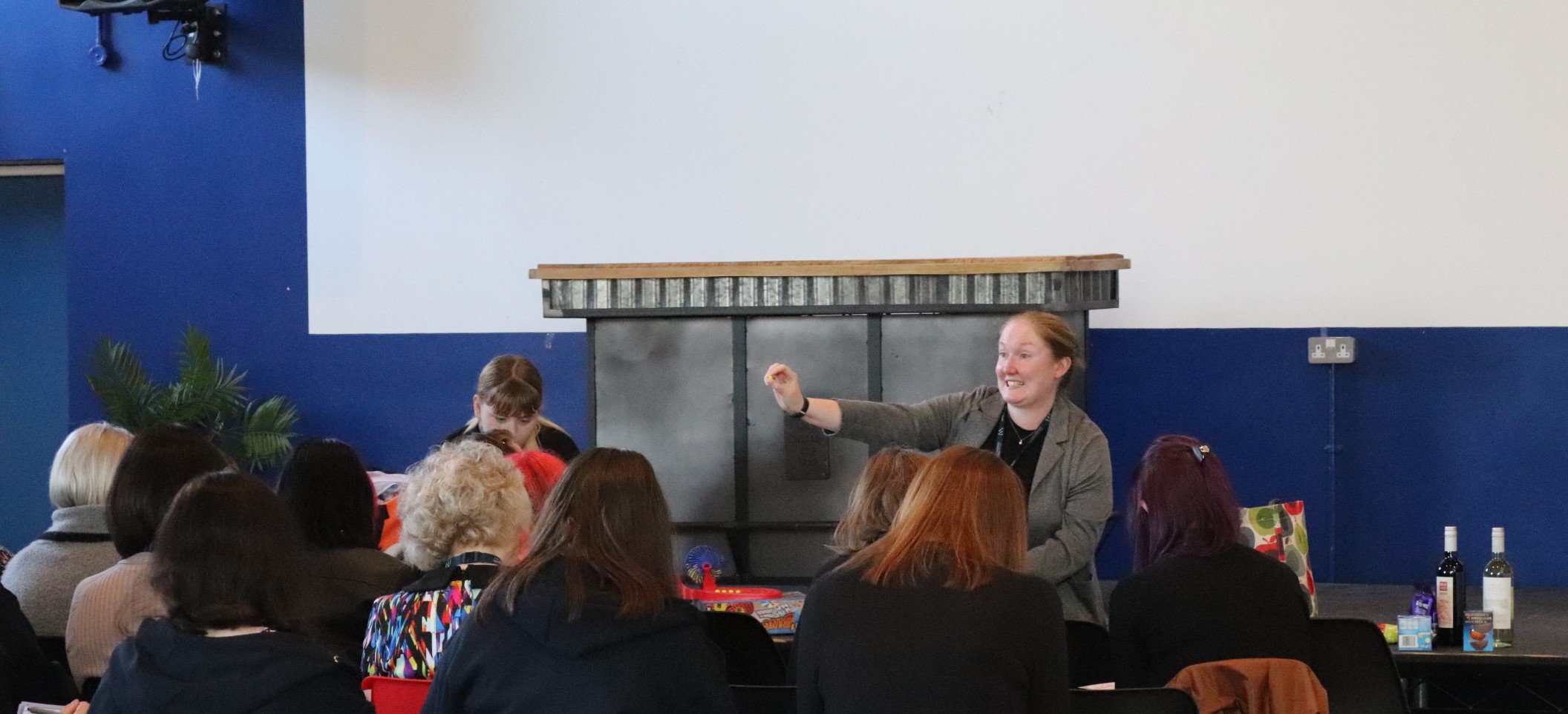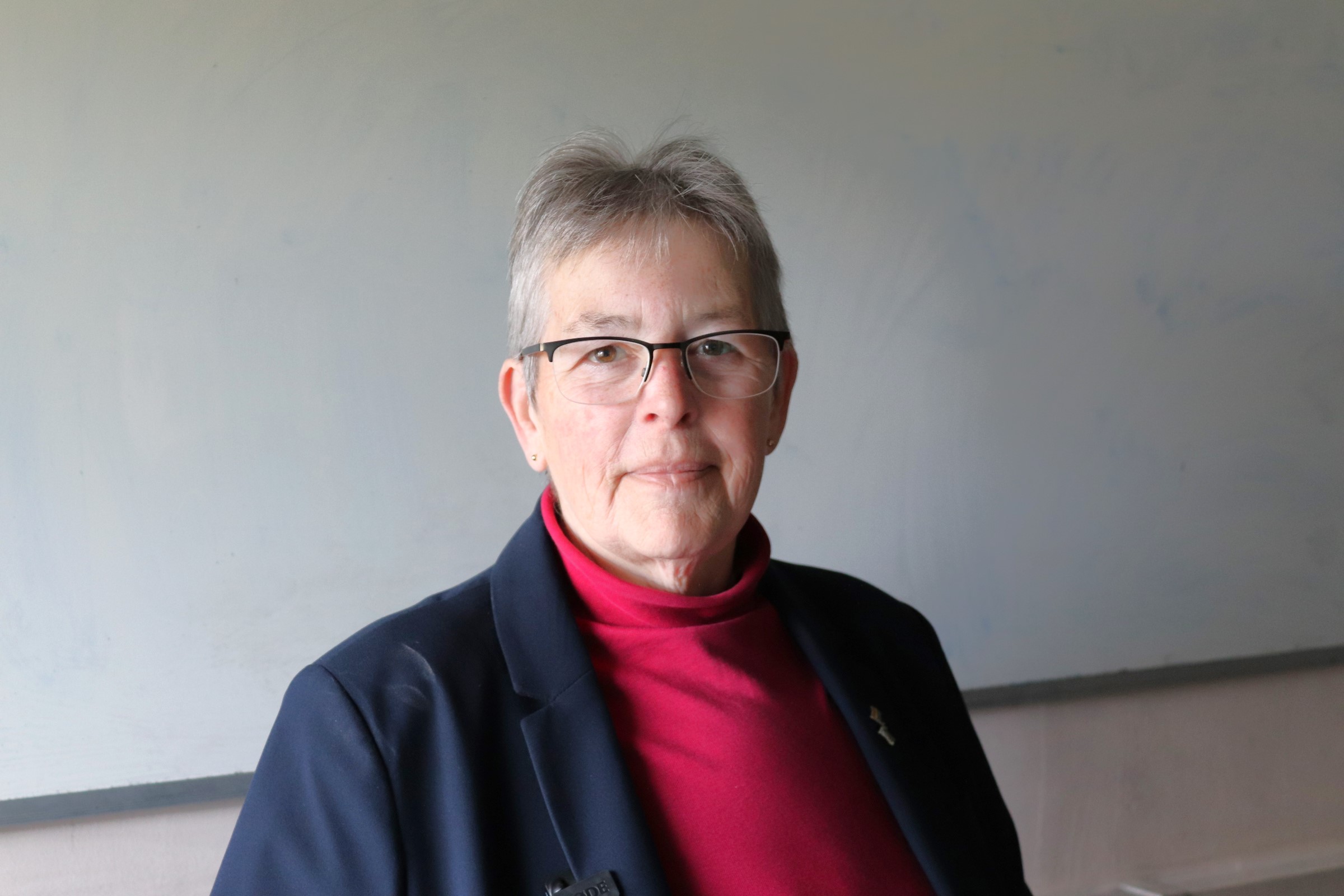Springboard 2024: Promoting Inclusivity in Research and the Workplace
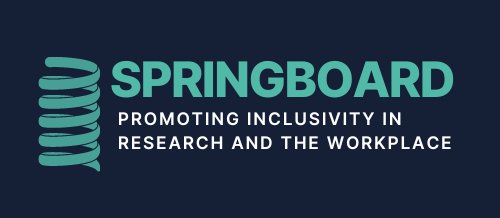
Breaking Boundaries: Navigating Discrimination in Postgraduate Research - A British Indian Punjabi Perspective
Opening the Springboard Staff and PGR Conference this year was Shivani Sanger, PhD student in Applied Science specialising in forensic anthropology. Shivani introduced herself as a second generation Indian Punjabi woman and asked the audience an important question – when we introduce ourselves, do we have to state our ethnicity? For white people, the answer is always no.
Shivani explained that they had never experienced discrimination in London, where they are from, but when they moved areas to complete their masters degrees, there were certain individuals who treated Shivani unfairly, which amounted to direct and indirect discrimination. These actions from people in positions of power changed the course of Shivani’s life as they prevented her from moving on in certain career paths for which she was extremely qualified, and had a significant negative impact on Shivani’s mental health and future options.
Shivani was constantly trying to find where she fit in and which direction to take with a career, starting with Physical Associate training, Forensic Medical Science, and moving to Human Osteoarchaeology.
A breakthrough came when Shivani attended the American Academy of Forensic Science meeting in America where she divulged her disappointment in the lack of diversity within the association and panel. This has led to slow and steady change in inclusion; we still have a long way to go, but Shivani is now making great progress with her PhD at Wrexham University. She ended on a quote from Martin Luther King, which put her talk perfectly into perspective.
Neurodiversity Understood | Lunch and Learn
Adjust shared their neurodiversity training and consultancy expertise at a lunch and learn session. Starting with a definition of neurodiversity and an overview of some of the neurotypes that fall within that umbrella term, the session then moved onto the ‘Cactus’ analogy:
A catus grown in a dessert environment with plenty of sun, limited rain and the correct nutrients from the ground will grow and thrive. If, however, you uproot that cactus and plant it in a back garden in Wrexham with limited sun, lots of rain and the wrong nutrients in the soil, the cactus will struggle to grow and flourish.
The same principle can be applied to people, in the right environment with the right support and resources, people can thrive and flourish.
The session looked at stereotypes, strengths and challenges of the skillsets of people with dyslexia, autism and ADHD. Discussions were also had around some of the great disruptors and innovators throughout time, including Walt Disney, Alan Turing, Elon Musk, Albert Einstein and Leonardo da Vinci, whose innovations were thought to be a result of neurodiversity. Final thought of the lunch and learn went to how we can create neuro-inclusive workplaces that benefit all.
Inclusion Services – Supporting Students with Neurodiversity
Sarah Roberts and Rachel Jones from Inclusion Services told the audience about the specialist advice and guidance available and how one of their main focuses was enabling a smooth transition from further education to higher education for our students. The service they offer includes help with Disabled Students Allowance and assessment, which is an in-house service funded by the NHS bursary scheme. (There have been some changes lately regarding what can be funded, so please contact one of the team if you are unsure how to advise your student.)
They further spoke of specialist mentoring, and how they have in-house dyslexia tutors and staff who can coach students through specific issues, but also help with broader mental health needs. The team also liaises with various departments across the university on accessibility issues, such as estates, accommodation, and other parts of Student Services.
Although students do not have to disclose a disability or need, and they don’t have to engage, the team spoke about how important it is to try to support them with where they are at. They talked about an example of good practice from the OIA (Office Independent Adjudicator) framework – create inclusive modules that provide different forms of assessment so that there is likely to be a way that works for everyone. This is in line with the social model of disability, that states it is the environment that is disabling.
Introduction to Irlens and making a positive impact on the student journey
In this session, Nettie Thomas took us through the potential ways people with Irlens (or visual processing differences) could see text on a page, particularly if it’s black text on a white background. Nettie showed us their Visualising Research Image of a white background with black text – it looked as though the page had air bubbles underneath that made the words bulge and merge together, making it very difficult to read.
Nettie’s main message here was that one easy, but big first step is to not use black text on a white background. It is a simple change that staff can use in their teaching and scholarly work, but it might help the readers of the words enormously. An interesting question from a viewer at the end inquired about the ideal colour to choose, but Nettie said that each person is different, and the best way to accommodate this is to provide all materials in editable formats. People can then change presentations and documents to their preferred colour.
Cultural Breakfast Celebration
So many of you joined us for a delicious and free cultural breakfast in United Kitchen! Thank you Aramark for the selection of foods provided. We had Mexican burritos and churros, various smoothies, American pancakes, Spanish frittatas, and Welsh rarebit! Yum.
Wales' Women in STEM
After Maria opened the main conference day, Dr Louise Bright from USW gave an insightful presentation on the gender split within STEM subjects from school up to her current position as Associate Dean within Higher Education.
Louise showed us some stark statistics on how girls outperformed boys in school within STEM subjects, but then these subjects were at the bottom of the list of careers for women, who mainly went into caring professions. For men, however, engineering was at the top of the list with caring professional being at the lower end.
Louise further shared her personal experiences of making her way through her higher education career, starting with a PhD. Louise was very isolated as a research student working in a hospital, with no network of other students around her to socialise with or vent about the research process. This insularity remained when Louise was postdoctoral, which cut her off from the knowledge about ordinary everyday experiences of being an academic, such as receiving funding rejections. As such, Louise’s confidence was low, and in a vacuum of self-doubt, she chose to side step into a professional managerial career instead.
Due to Louise’s own experiences, and her awareness of the nature of women in STEM subjects, she set up a network at USW, and later on, broadened this to the Wales’ Women in STEM Network, to encompass all of Wales.
Discovering Discourse and Diversity
Hayley opened this session talking about how words and roles put us in positions of privilege and power and that we need to analyse our language to ensure we’re working in anti-discriminatory ways.
Hayley explained what is meant by ‘discourses’, which are constructive and productive established ways of talking, with the words we use influencing how we interreact, think, speak, and read. The methodology of discourse analysis intends to “make the familiar, strange”, that is, hone in on ordinary phrases that may hold so much power or portray negative messages, it may be time to find alternatives.
Next, Hayley introduced us to several poems, asking the audience to read and comment on their content. One of these poems communicated that even dictionary definitions of words are powerfully unbalanced, with the theme being black/white and how these two words and what they represent always sway in favour of those in power: white people. These are everyday phrases that people use every day, but do not usually bother most people as they are not in the group that is ‘othered’.
Race Equality Charter Training Session
After some technical difficulties (it was bound to happen at some point!), Yasmin and Ali took the attendees through Module 1 of the Race Equality Charter Staff Training. After outlining some principles for respectful conversation, the training began with an historical overview of factors that have influence racist ideologies.
Next, the session moved on to focus on racism in relation to the HE context, which can appear in a variety of ways from the individual up to the organisational level. These examples of embedded racism were supported by quotes from the Race Equality Staff and Student Survey.
The session further explored racism in the HE context, linking to our university’s racial group makeup, with senior leadership positions filled entirely by white people, and then moved on to introduce ‘intersectionality’. The team ended with a brief overview of what our university is doing to move forward and tackle the inbuild racism within higher education institutions via the Race Equality Charter.
Trauma Informed Language: Culture Café
Tegan hosted our second Culture Café on Trauma-Informed Language, mentioning how the discussion and ideas arising from the session would be used in a new guidance document for conducting Trauma-Informed Research.
After briefly going over the house rules, Tegan gave us an overview of trauma-informed approaches and the importance of using trauma-informed language. We then had to answer several questions in groups around sensitive language and fed back.
What We Value – considerations for academics engaging with experts through experience in teaching and research
In this session, Outside In, a focus group comprising experts by experience, visited the University to talk about what they value in academics who work with them. They have often been termed a ‘human library’, as they have a wealth of experience and expertise in subjects and issues that staff here will teach or research. For academics who want to avoid empty gestures, Outside In is an invaluable group to involve in academic endeavours with students and staff.
Welsh Bingo
Teresa Davies led the Welsh Bingo (spoken in English too!) in the SU and some of you walked away with wine and sweet treats! Thanks to all who attended.
Celebrating Difference – How the arts raise awareness of EDI
Alec and Tracey gave a pictorial presentation on how the arts raise awareness of EDI – they covered the recent project at Ty Pawb with the mental health charity KIM Inspire, whereby volunteers developed a green space on the old car park roof.
Collaborative Research on the Wellbeing of Seldom Heard Young People (15-21 years)
Wrexham University Alum, Dr Leighann Ryan Culleton gave a very informative session on the Youthreach programme, the Irish Government’s response to early school leavers, to provide young people with training and social inclusion opportunities. Leighann then discussed research into the Youthreach programme to gain a deeper understanding of the needs of young people.
LGBTQ+ Health and implications for research
Joy Hall, a recent Visiting Professor in Nursing, returned to Wrexham University to deliver a talk on LGBTQ+ health considerations for research. Joy tested our knowledge with a series of ‘true’ or ‘false’ statements relating to health issues of gay, lesbian, bi, or trans folk, revealing some interesting information. Next, Joy presented some statistics on how disadvantaged this community were on certain health issues for a variety of reasons; for example, LGBTQ+ folk can be afraid to seek healthcare, they have worse mental health, and are more likely to develop cervical, anal, or breast cancer.
Joy ended with the implications for research practice with ‘hard to reach’ groups, outlining intersecting variables such as researchers’ professional anxiety, interactions, history, minority stress and intersectionality. Her take home message was: persist! More research is needed with these groups, and even though recruitment may be challenging, we must not give up.
Participatory Research Considerations
Wulf presented on a topic he is well versed in – participatory research. He began with some reflections on his journey and lessons learned, stressing that it was not a ‘how to do’ it session, rather a ‘what to consider’. Wulf then explained what participatory research is and things to consider within your research project if you wanted to embark on a participatory research journey of your own.
Neurodivergent staff in UK Higher Education (HE) Research Group
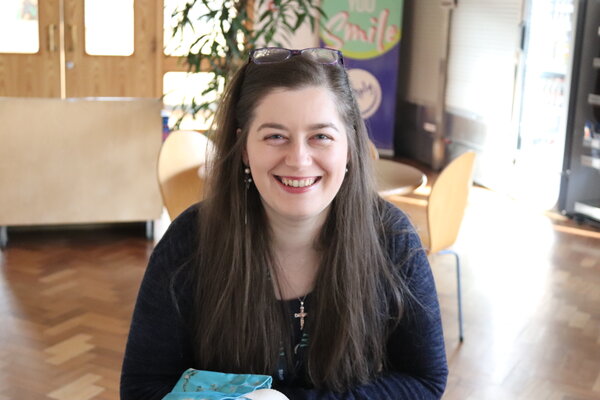
Gwen gave an overview of the research team’s plans to conduct several projects on neurodiversity that have just gained ethical approval. These include an Event Day, which will seek views from a variety of people who are university changemakers; interviews with neurodivergent academics and professional services staff with or without line management responsibility; and autoethnographic research that involves the research team self-reflecting.
The research group has recently won a grant from the Early Career Researcher Network, which will fund the Event Day.
Exploring parents’ and carers’ experiences of care and support services for their child with a learning disability in North Wales
Dawn Jones outlined her progress on the Improvement Cymru funded research into parents and carers’ experiences of support for their child with learning disabilities. This is the second project by Dawn on this subject area. This time, Dawn is conducting online focus groups to really understand the qualitative views of support experiences (or not) within the social care landscape.
Unlocking Potential: Navigating Neurodiversity in the Higher Education Workplace
Caro Gorden, recent Reader in Criminology and Criminal Justice at Wrexham University dialled in from Spain for a personal and informative presentation on navigating neurodiversity in Higher Education. Caro spoke of how she experienced burnout due to work addiction, coping with undetected neurodivergence, and then a challenging life event on top of that. This led Caro to make the best decisions she could for her and her family, so she subsequently left Higher Education and is now a freelance Coach with Neurodirections.
Caro talked about her own ADHD, and also referred to Autism in the workplace, pinpointing some key challenges that people can face. She also suggested some methods that people could implement in order to cope with busy demands of a HE workplace, as well as signposted to Access to Work and other private agencies.
One of the main messages of Caro’s presentation was that workplaces must be filled with kindness and have a strong anti-bullying culture, because one person can pollute the whole working environment. There were lots of supportive messages in the chat and many people identified with lots of things that were said.
Supporting Neurodiversity at Wrexham University
In this session, Rose Norton and Stacey Ledger gave us a specific overview of what Wrexham University has on offer to support its neurodivergent staff. They started off with a quick Kahoot quiz on neurodiversity, and it was fastest finger first!
The team then gave a brief overview of neurodiversity and talked about who individuals could approach at the university if they needed assistance or accommodations; people included line managers, HR, HR Business Partners, Occupational Health, and the Employee Assistance Programme. Rose and Stacey spoke of the Access to Work scheme, and also a guidance document for staff that is in the pipeline. A take home message was talk to people and ask for what you need, as the university can’t help unless they know!
Perception by others once difference from accepted normality can no longer be concealed
Dr Carey Pridgeon shared his personal story of being different and treated unfairly throughout school and during various roles in the workplace. Carey now sits on the University Ethics Committee and enjoys his contributions being valued by Wrexham University.
Conference Close but what’s next… the launch of Neurodiversity Staff Network
Fran Thomason closes the conference by giving a heartfelt summary of the week, and looking forward to how we can be better with EDI, as a university. Her first slide introduces herself in a wholly accessible way: name, pronouns, job title, visual description, access check-in, get to know me, and how I feel today.
She talks about the conference theme, which promoted a safe, fair, and welcoming environment to celebrate each other’s differences and empower individuals, but also reflections on how to make future conferences the most inclusive they can be. Considerations for next time: more inclusion of the Welsh language, considering sign language and hearing loops, giving descriptions of room layouts etc..
Lastly, Fran talks about the launch of the neurodivergent staff network and the neuroinclusion staff network – a great way to end the week! Thank you to everyone who made this happen. If you want to join the self-identifying neurodivergent network, or the open-to-all neuroinclusion network, please contact Fran or the Research Office.
